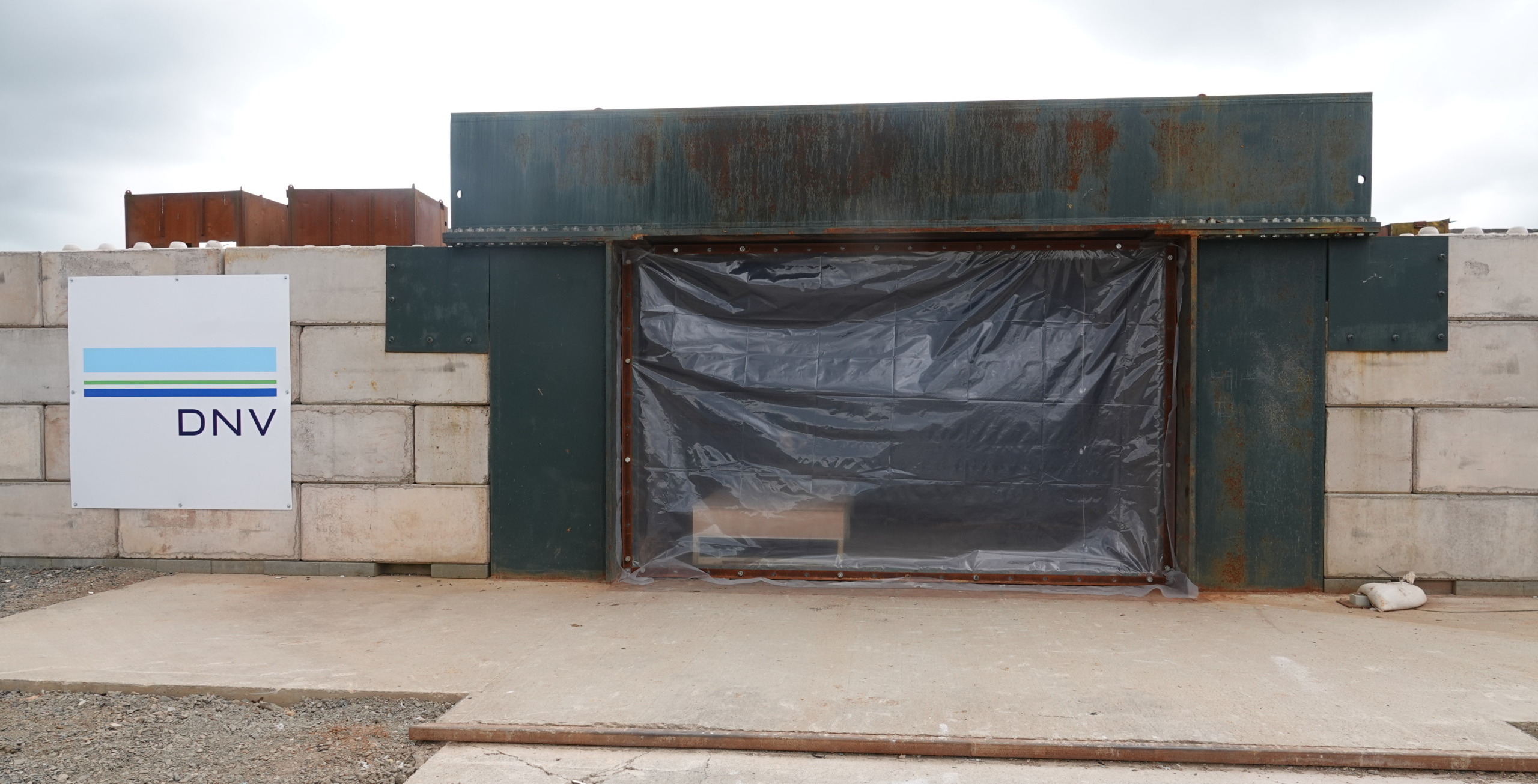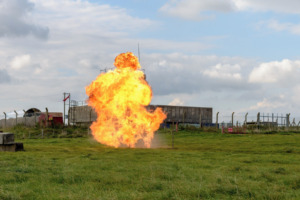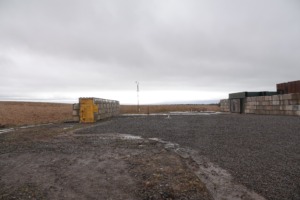My PhD Journey: How being on a placement during my PhD shaped my future career
10/09/2024

I had already made my mind up that I wanted to study the Explosives Ordnance Engineering MSc before I’d even undertook my undergraduate degree. I asked how I could apply to start that year and what I’d need to be accepted, and even asked if I could skip my BSc and come straight to Cranfield knowing that it was exactly what I wanted to study.
I studied Chemical Engineering for my Bachelor’s in India but my fascination with explosives started when I was just a teenager, back in high school in India. I have always been passionate about science, and chemistry, in particular, captured my imagination. At around fifteen years old, I successfully made an explosive that tested my theories for engineering and development. That experiment convinced me that this was the field I wanted to dedicate myself to.
I loved the MSc and learning all the practical applications, methods and test and evaluation skills that came with it.
From postgraduate to doctorate
When I embarked on my PhD journey at Cranfield University, I knew it would be a challenging yet rewarding experience. My research focused on the risk assessment of hydrogen for domestic applications, a topic that’s not only timely but also critical for the future of sustainable energy.
However, I didn’t realise just how transformative this journey would become until I had the opportunity to work with DNV, a global leader in risk management and quality assurance. My placement with DNV was, without a doubt, one of the most important experiences of my PhD, shaping both my research and my future career in ways I never anticipated.
Before my placement, my research was primarily theoretical. I spent countless hours in the lab and library, analysing data, reading papers, and developing models. While this work was intellectually stimulating, it often felt removed from the practical, real-world applications I was passionate about. The opportunity to work with DNV came at the perfect time, offering me a chance to bridge the gap between academia and industry.
At DNV, I was thrust into a world where research isn’t just about exploring ideas but about solving real, tangible problems. My work there involved live-scale testing of hydrogen ignition consequences in a simulated domestic setting—a scenario that couldn’t be replicated in a university lab. This hands-on experience was invaluable, providing me with insights and data that significantly enriched my research. More importantly, it gave me a clear understanding of how my work could impact the future of energy safety and allowed me to engage in practical use of something that I became aware of from a school age about the use, development and applications of explosives.

One of the unique parts of the Explosive Ordnance Engineering MSc and students studying chemistry at CDS is access to live explosive testing at our dedicated Cranfield Ordnance Test and Evaluation Centre (COTEC).
What were the challenges?
One of the biggest challenges—and rewards—of working with DNV was learning to think like an industry professional. In academia, research is often driven by curiosity and the pursuit of knowledge. In contrast, industry research is problem-focused and driven by the needs of clients and the market.
During my placement, I had to learn how to balance scientific theory with practical considerations. I had to ensure that my findings were not only accurate but also applicable in real-world scenarios. This experience taught me to approach problems more holistically, considering not just the science but also the engineering, economic, and regulatory aspects. It was a steep learning curve, but it was also incredibly rewarding. By the end of my placement, I had a much clearer understanding of how to translate academic research into industry practice—a skill that is now invaluable to me.
Building connections
Another significant benefit of working with DNV was the opportunity to build professional connections. The team at DNV was not only supportive but also incredibly knowledgeable, and I learned a great deal from working alongside them. These connections were instrumental in helping me transition from a PhD student to a professional in the field.

DNV offers me the opportunity to expand on my research with their dedicated research test sites.
This experience underscored the importance of networking and building relationships within the industry. While academic achievements are important, having industry experience and connections can be a game-changer when it comes to finding a job post-PhD. My placement at DNV didn’t just help me complete my research—it helped me recognise the direction for my career.
Working with DNV also contributed to my personal growth in ways I hadn’t expected. The fast-paced, high-stakes environment of industry research taught me how to manage stress and balance competing priorities. I was able to use the direct expertise of my colleagues to not only challenge them constructively, but to suggest new tools, tests, and methods for future experiments.
A Transformative Experience
Looking back, my placement with DNV was one of the most transformative experiences of my PhD journey. It took my research to the next level, provided me with invaluable industry experience, and opened doors to exciting career opportunities.
For anyone considering a PhD or currently on that path, I cannot stress enough the importance of seeking out industry placements. They offer a unique opportunity to apply your research in a real-world context, gain practical skills, and set yourself up for success both academically and professionally.
Categories & Tags:
Leave a comment on this post:
You might also like…
Company codes – CUSIP, SEDOL, ISIN…. What do they mean and how can you use them in our Library resources?
As you use our many finance resources, you will probably notice unique company identifiers which may be codes or symbols. It is worth spending some time getting to know what these are and which resources ...
Supporting careers in defence through specialist education
As a materials engineer by background, I have always been drawn to fields where technical expertise directly shapes real‑world outcomes. Few sectors exemplify this better than defence. Engineering careers in defence sit at the ...
What being a woman in STEM means to me
STEM is both a way of thinking and a practical toolkit. It sharpens reasoning and equips us to turn ideas into solutions with measurable impact. For me, STEM has never been only about acquiring ...
A woman’s experience in environmental science within defence
When I stepped into the gates of the Defence Academy it was the 30th September 2019. I did not know at the time that this would be the beginning of a long journey as ...
Working on your group project? We can help!
When undertaking a group project, typically you'll need to investigate a topic, decide on a methodology for your investigation, gather and collate information and data, share your findings with each other, and then formally report ...
From passion to purpose: My journey at the Pinnacle of Aviation
By: Sultana Yassin Abdi MSc Air Transport Management, Current Student Born and raised in the vibrant landscape of the UAE, with roots stretching back to Somalia, my life has always been ...






